
The Serene Heights of Mambilla Plateau
Nestled in the northeastern part of Nigeria, the Mambilla Plateau is a breathtaking destination that offers a serene escape from the bustle of city life. With an elevation of over 1,600 meters above sea level, this plateau is the highest point in Nigeria and boasts a cool climate that is quite different from the rest of the country. The lush green landscapes, rolling hills, and picturesque tea plantations make it a paradise for nature lovers and adventure seekers alike. One of the most striking features of the Mambilla Plateau is its stunning waterfalls. The Gembu Waterfalls and the Ngel Nyaki Forest Reserve are must-visit spots for anyone looking to experience the raw beauty of nature. The forest reserve is home to diverse wildlife and offers excellent opportunities for bird watching and hiking. The plateau is also known for its rich cultural heritage, with several indigenous tribes residing in the area. Visitors can immerse themselves in the local culture by exploring traditional villages and experiencing the warm hospitality of the locals. For those interested in agriculture, the Mambilla Plateau is famous for its tea and coffee plantations. A visit to the Gembu Tea Estate provides a unique opportunity to learn about the tea-making process and sample some of the finest teas in the region. The plateau's fertile soil and favorable climate also support the cultivation of various fruits and vegetables, making it a hub for organic farming. Whether you are looking for adventure, relaxation, or cultural exploration, the Mambilla Plateau offers a diverse range of experiences that promise to leave you enchanted.
Local tips in Mambilla Plateau
- Bring warm clothing, as the climate can be much cooler than the rest of Nigeria.
- Hire a local guide for hiking and exploring the waterfalls to ensure safety and gain valuable insights.
- Visit the Gembu Market for local crafts and fresh produce.
- Plan your trip during the dry season (November to March) for the best weather conditions.
- Don't miss the chance to taste locally grown tea and coffee, which are specialties of the region.
The Serene Heights of Mambilla Plateau
Nestled in the northeastern part of Nigeria, the Mambilla Plateau is a breathtaking destination that offers a serene escape from the bustle of city life. With an elevation of over 1,600 meters above sea level, this plateau is the highest point in Nigeria and boasts a cool climate that is quite different from the rest of the country. The lush green landscapes, rolling hills, and picturesque tea plantations make it a paradise for nature lovers and adventure seekers alike. One of the most striking features of the Mambilla Plateau is its stunning waterfalls. The Gembu Waterfalls and the Ngel Nyaki Forest Reserve are must-visit spots for anyone looking to experience the raw beauty of nature. The forest reserve is home to diverse wildlife and offers excellent opportunities for bird watching and hiking. The plateau is also known for its rich cultural heritage, with several indigenous tribes residing in the area. Visitors can immerse themselves in the local culture by exploring traditional villages and experiencing the warm hospitality of the locals. For those interested in agriculture, the Mambilla Plateau is famous for its tea and coffee plantations. A visit to the Gembu Tea Estate provides a unique opportunity to learn about the tea-making process and sample some of the finest teas in the region. The plateau's fertile soil and favorable climate also support the cultivation of various fruits and vegetables, making it a hub for organic farming. Whether you are looking for adventure, relaxation, or cultural exploration, the Mambilla Plateau offers a diverse range of experiences that promise to leave you enchanted.
When is the best time to go to Mambilla Plateau?
Unmissable attractions to see
Gashaka-Gumti National Park
Explore the breathtaking landscapes and rich biodiversity of Gashaka-Gumti National Park, Nigeria's largest national park, perfect for outdoor adventures.
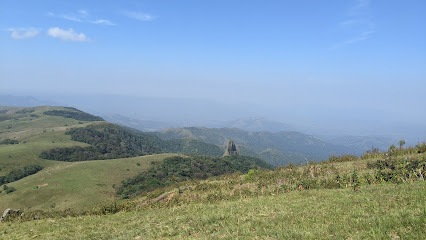
Chappal Hendu
Explore the breathtaking heights of Chappal Hendu, Nigeria's highest peak, where adventure meets nature's splendor in Taraba State.

Essential places to dine
MALADISU RESTAURANT
Discover the culinary delights at Maladisu Restaurant in Gembu – where every meal tells a story of flavor and tradition.
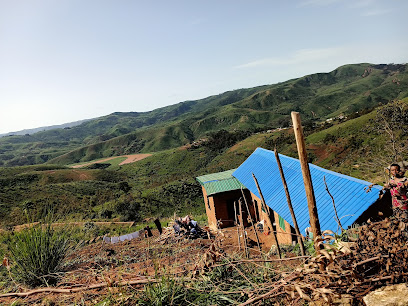
GECHAAN RESTAURANT
Savor authentic flavors at Gechaan Restaurant in Gembu, where local cuisine meets international flair in a cozy atmosphere.
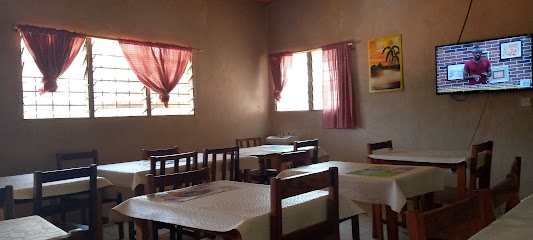
Best African Kitchen (Nwalupo-Aku)
Discover authentic African cuisine at Best African Kitchen in Jalingo – where every dish tells a flavorful story.
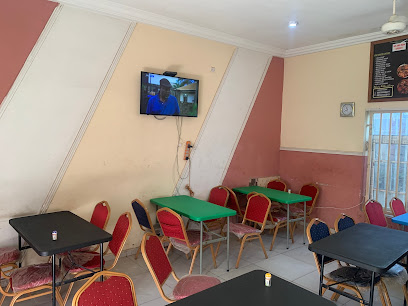
Best Road Side Eatry Gembu Restaurant
Experience authentic Taraba cuisine at Gembu Restaurant - a roadside delight on Bali-Jalingo Road offering fresh local flavors.
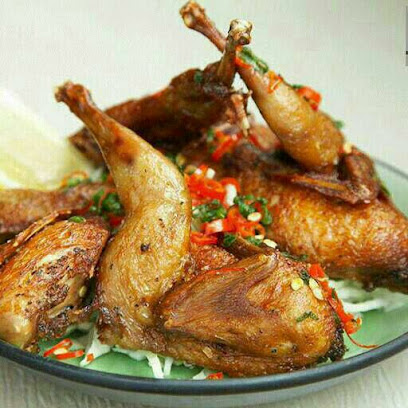
Markets, malls and hidden boutiques
Mambilla Plateau
Experience the breathtaking beauty of Mambilla Plateau, a hidden gem in Taraba State, Nigeria, known for its stunning landscapes and rich cultural heritage.
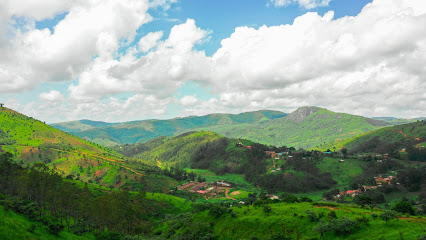
Bashmall Cement Depot
Discover the heart of Taraba at Bashmall Cement Depot, a vibrant supermarket offering local goods and an authentic shopping experience.
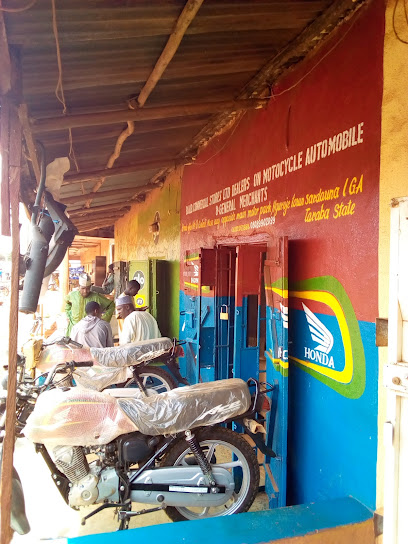
C-Mee Super Market
Explore local flavors and everyday essentials at C-Mee Super Market in Gembu, your go-to supermarket for a taste of Taraba's vibrant culture.
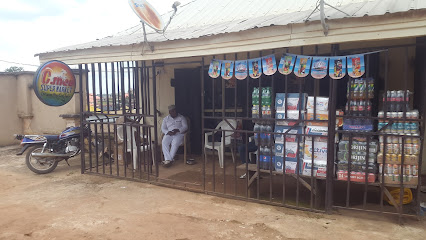
Zainab Shopping Complex
Discover unique home goods and local craftsmanship at Zainab Shopping Complex in Guroji, Taraba – a vibrant shopping destination.
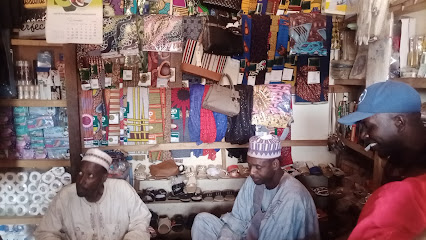
UST Tailoring
Discover the essence of Taraba's culture with tailor-made clothing at UST Tailoring, Mayo Ndaga's premier clothing store.

9mobile SIM Registration Centre
Stay connected while exploring the beautiful landscapes of Taraba State at the 9mobile SIM Registration Centre in Serti.
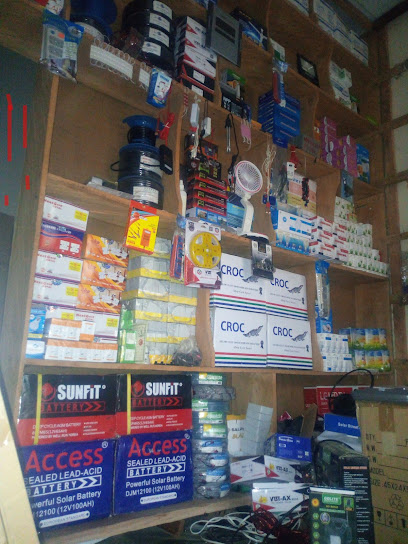
Njobdi Best family store serti
Discover Njobdi Best Family Store in Serti, your trusted pharmacy for health essentials and personalized care.

Rayno's Furniture Workshop
Explore the craftsmanship of Rayno's Furniture Workshop in Gembu, where traditional artistry meets modern design in stunning furniture pieces.

Sankafuri Ventures
Discover the latest electronics and gadgets in Gembu at Sankafuri Ventures, your tech haven in Taraba.

S.Tasha Communication
Discover S.Tasha Communication in Gashaka for all your mobile needs, ensuring connectivity during your adventures in Taraba, Nigeria.
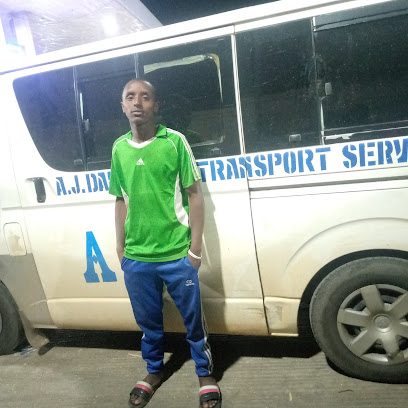
BLESSED T.H.O & SON'S NIG.
Explore local flavors and everyday essentials at Blessed T.H.O & Son's Nig., Gembu's vibrant supermarket for all your shopping needs.
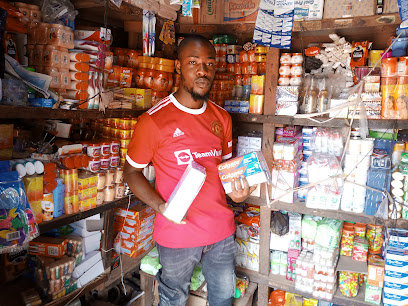
EL-Faruq General Ventures
Discover local treasures at EL-Faruq General Ventures, a charming general store in the heart of Taraba, offering unique souvenirs and a taste of the region.

Bamungi Tailoring And Sewing Materials
Explore a vibrant selection of fabrics and sewing materials at Bamungi Tailoring And Sewing Materials, a must-visit destination for fashion enthusiasts in Taraba.

El MUSTY FASHION AND DESIGN
Explore vibrant fashion at El MUSTY FASHION AND DESIGN in Mayo Ndaga, where local artistry meets contemporary style.
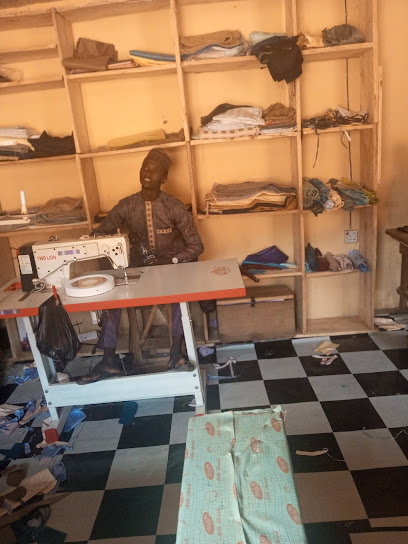
Cooperate Accessories
Discover top-notch computer accessories at Cooperate Accessories in Adamu, where technology meets quality and convenience.

Essential bars & hidden hideouts
Beer Barn Abuja
Experience the vibrant nightlife of Abuja at Beer Barn, where relaxation meets excitement in the heart of Nigeria's capital.
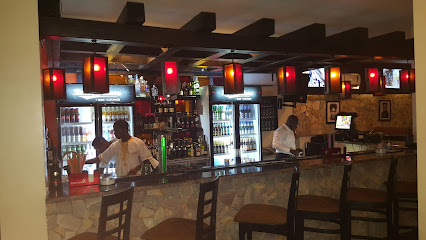
A Bar Called Paper
Experience the vibrant nightlife and culinary delights at A Bar Called Paper in Abuja, a perfect fusion of local flavors and contemporary ambiance.
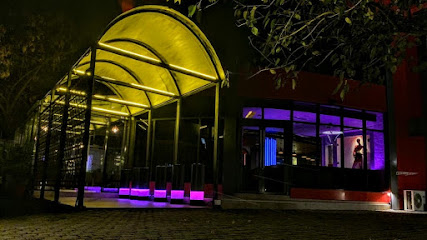
Emerald Park, Bush Bar
Experience the vibrant nightlife of Abuja at Emerald Park, Bush Bar, where refreshing drinks and lively ambiance await you.
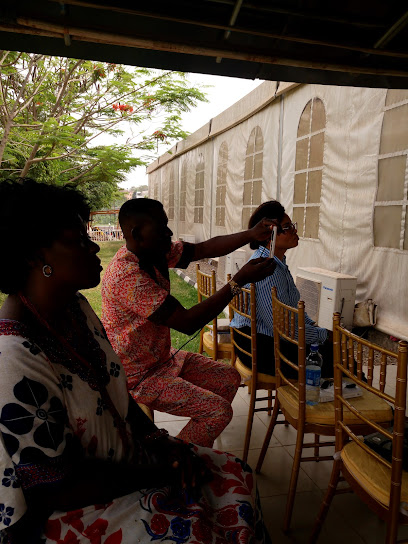
Cue Bar
Discover the vibrant cocktail culture of Abuja at Cue Bar, where every night is a celebration of taste and ambiance.
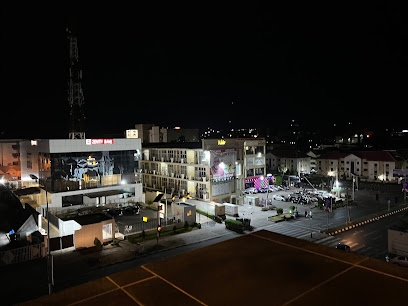
Monoliza Pub & Restaurant
Discover the lively atmosphere and delicious dishes at Monoliza Pub & Restaurant in the heart of Abuja, where local culture meets culinary excellence.
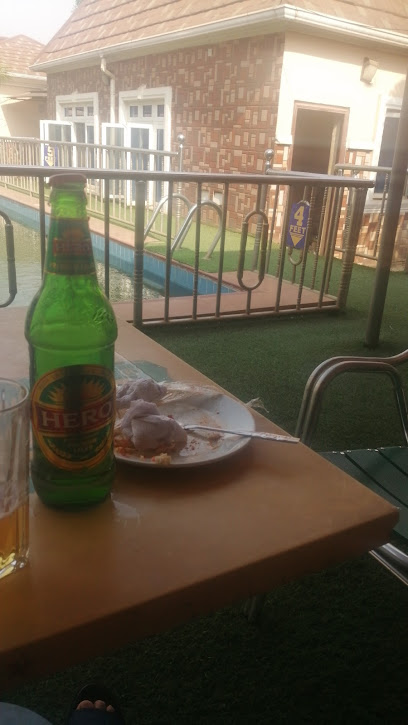
Zimbabwe Bush Bars
Discover the lively atmosphere and local flavors at Zimbabwe Bush Bars, a must-visit destination for tourists seeking a taste of Uke's nightlife.
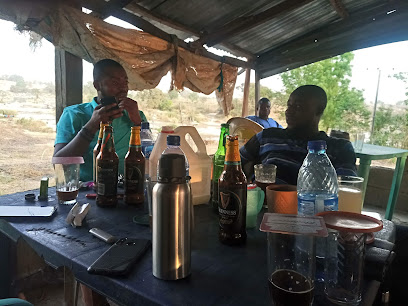
CALM DOWN TAVERN & LOUNGE
Experience vibrant nightlife and delightful culinary offerings at Calm Down Tavern & Lounge in Abuja, a perfect spot for tourists looking to unwind.
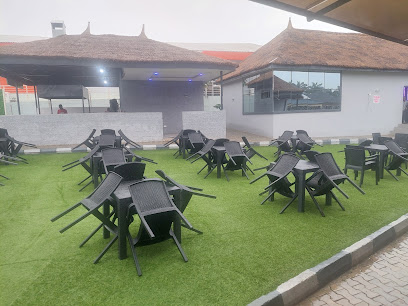
Oakland Lounge and Bar
Experience the vibrant atmosphere at Oakland Lounge and Bar in Abuja, where delicious drinks and great company await you.
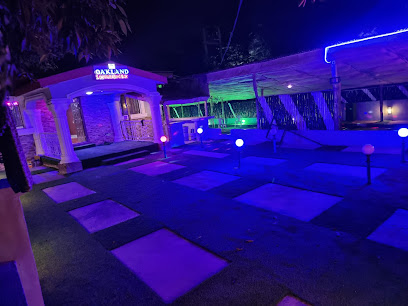
Mama Pammy
Discover the rich flavors of Nigeria at Mama Pammy, a grill restaurant in Lugbe offering delicious local dishes and refreshing palm wine.

Skye Bar Rooftop Lounge
Discover the elegance of Skye Bar Rooftop Lounge, where stunning views and exquisite drinks create the perfect atmosphere for relaxation and enjoyment in Aso.
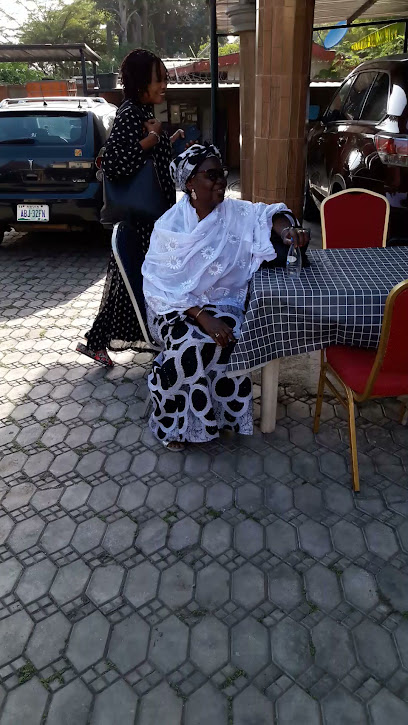
Monkey Bar
Unleash your nightlife experience at Monkey Bar, Mararaba's vibrant disco club with a bar, grill, and unforgettable events.
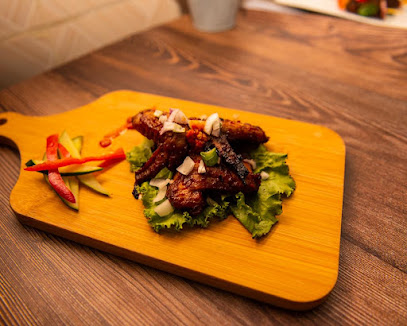
Madiba's Jazzy-K Club
Discover the vibrant nightlife at Madiba's Jazzy-K Club in Gembu, Taraba - a lively bar where local culture meets music and fun.

Ramona Neon Bar
Experience the vibrant nightlife of Wuse 2 at Ramona Neon Bar, where exquisite cocktails and a lively atmosphere await.
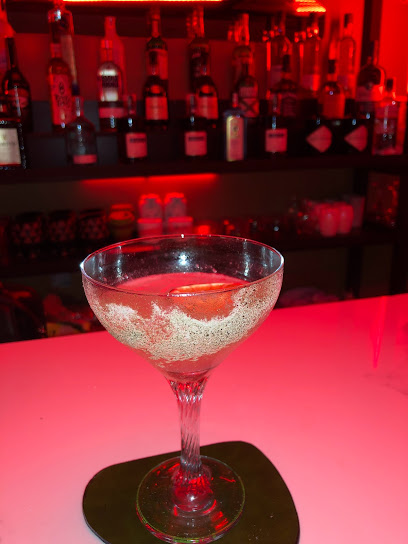
The World Bar
Experience the vibrant nightlife of Gembu at The World Bar, where local flavors and warm hospitality come together for an unforgettable evening.

Local Phrases about Mambilla Plateau
-
- HelloNda
[Nda] - GoodbyeNdua
[Ndua] - YesAwo
[Awo] - NoNji
[Nji] - Please/You're welcomeInama
[Inama] - Thank youNdala
[Ndala] - Excuse me/SorryMafi
[Mafi] - How are you?Ori?
[Ori?] - Fine. And you?Ori. Iwo?
[Ori. Iwo?] - Do you speak English?O kpe ta English?
[O kpe ta English?] - I don't understandA m si
[A m si]
- HelloNda
-
- I'd like to see the menu, pleaseA kpe kpo menu, inama
[A kpe kpo menu, inama] - I don't eat meatA nji nso
[A nji nso] - Cheers!Ndo!
[Ndo!] - I would like to pay, pleaseA kpe kpo ewu, inama
[A kpe kpo ewu, inama]
- I'd like to see the menu, pleaseA kpe kpo menu, inama
-
- Help!Ndua!
[Ndua!] - Go away!Nyala!
[Nyala!] - Call the Police!Kpe kpo Police!
[Kpe kpo Police!] - Call a doctor!Kpe kpo doctor!
[Kpe kpo doctor!] - I'm lostA nji cho
[A nji cho] - I'm illA nji nso
[A nji nso]
- Help!Ndua!
-
- I'd like to buy...A kpe nso...
[A kpe nso...] - I'm just lookingA nji ta
[A nji ta] - How much is it?O kpe kpo?
[O kpe kpo?] - That's too expensiveO kpala
[O kpala] - Can you lower the price?O kpe kpo ewu?
[O kpe kpo ewu?]
- I'd like to buy...A kpe nso...
-
- What time is it?O kpe nda?
[O kpe nda?] - It's one o'clockA kpe nda yi
[A kpe nda yi] - Half past (10)Nda kpe aha (10)
[Nda kpe aha (10)] - MorningNdou
[Ndou] - AfternoonNda yara
[Nda yara] - EveningNda kpe
[Nda kpe] - YesterdayNda kpala
[Nda kpala] - TodayNda kpe
[Nda kpe] - TomorrowNda yi
[Nda yi] - 1Ahala
[Ahala] - 2Ahaa
[Ahaa] - 3Ahaata
[Ahaata] - 4Ahana
[Ahana] - 5Aha da
[Aha da] - 6Aha dda
[Aha dda] - 7Aha nta
[Aha nta] - 8Aha naa
[Aha naa] - 9Aha kpe
[Aha kpe] - 10Aha kpe aha
[Aha kpe aha]
- What time is it?O kpe nda?
-
- Where's a/the...?O kpe kpo...?
[O kpe kpo...?] - What's the address?O kpe ina?
[O kpe ina?] - Can you show me (on the map)?O kpe kpo o (na map)?
[O kpe kpo o (na map)?] - When's the next (bus)?O kpe kpo aha (bus)?
[O kpe kpo aha (bus)?] - A ticket (to ....)A kpe nso (si ....)
[A kpe nso (si ....)]
- Where's a/the...?O kpe kpo...?
History of Mambilla Plateau
-
The Mambilla Plateau has been inhabited for thousands of years, with evidence of settlement dating back to the Neolithic period. The Mambilla people, an ethnic group native to the plateau, are believed to be among the earliest settlers. Their rich oral traditions and archaeological artifacts, such as stone tools and pottery, provide insight into their early way of life.
-
In the 19th century, the Fulani people began to migrate to the Mambilla Plateau, bringing with them new cultural and religious influences. The Fulani, who are predominantly Muslim, introduced Islam to the region, which led to significant cultural exchanges and transformations. This period also saw the establishment of trade routes that connected the plateau with other parts of Nigeria and beyond.
-
The Mambilla Plateau came under British colonial rule in the early 20th century. The British were attracted to the plateau's mild climate and fertile land, and they established several administrative posts and agricultural projects. During this time, the region saw the introduction of Western education and infrastructure development, including roads and healthcare facilities.
-
After Nigeria gained independence in 1960, the Mambilla Plateau experienced significant social and economic changes. The Nigerian government invested in the development of the region, focusing on agriculture, tourism, and infrastructure. The plateau's tea plantations, established during the colonial period, were expanded, making Mambilla one of Nigeria's key tea-producing areas.
-
The Mambilla Plateau is home to a vibrant cultural heritage, with various festivals and traditional practices that reflect the region's diverse ethnic makeup. One of the most notable festivals is the Nding, celebrated by the Mambilla people to mark the end of the farming season. This festival features traditional music, dance, and storytelling, showcasing the rich cultural tapestry of the plateau.
-
Today, the Mambilla Plateau is a popular tourist destination, known for its stunning landscapes, cool climate, and cultural attractions. The region continues to thrive with a blend of traditional practices and modern advancements. Efforts to preserve its natural and cultural heritage are ongoing, ensuring that the Mambilla Plateau remains a unique and captivating destination for visitors.
Mambilla Plateau Essentials
-
Mambilla Plateau is located in Taraba State, Nigeria. The nearest international airport is Nnamdi Azikiwe International Airport in Abuja, approximately 400 kilometers away. From Abuja, you can take a domestic flight to Jalingo, the capital of Taraba State, and then a taxi or bus to the plateau. The journey from Jalingo to Mambilla Plateau typically takes around 6 to 8 hours by road. Alternatively, you can hire a private car or join a guided tour for a more comfortable and direct trip.
-
Transportation within Mambilla Plateau is mainly by road. Local taxis, motorcycles, and minibuses (keke napep) are available for short distances. For longer trips, you can hire a private car or use local buses that connect the major towns and tourist sites. It is advisable to arrange transportation in advance, especially for remote areas. Renting a 4x4 vehicle can be advantageous due to the rugged terrain in some parts of the plateau.
-
The official currency in Nigeria is the Nigerian Naira (NGN). Credit cards are accepted in some hotels, restaurants, and shops, but it is advisable to carry cash, especially in smaller establishments and rural areas. ATMs are available in major towns like Gembu, but it is wise to withdraw sufficient cash before traveling to more remote locations. Ensure you have small denominations for easier transactions.
-
Mambilla Plateau is generally a safe destination for tourists. However, it is advisable to take standard precautions. Avoid walking alone at night in unfamiliar areas and keep an eye on your belongings in crowded places. While there are no specific high-crime areas targeting tourists, it is always best to stay vigilant and aware of your surroundings. Consult local guides or hotel staff for up-to-date information on safety.
-
In case of emergency, dial 112 for immediate assistance. The local police station and medical facilities are available in towns like Gembu. It is recommended to have travel insurance that covers medical emergencies. For minor health issues, there are pharmacies in the towns where you can purchase over-the-counter medications. Always carry a basic first-aid kit and necessary medications with you.
-
Fashion: Do dress modestly, especially in rural areas and when visiting religious sites. Avoid wearing revealing clothing. Religion: Do respect local customs and traditions. Always remove your shoes before entering a mosque. Public Transport: Do be respectful and give up your seat to elderly passengers. Don't eat or drink on public transport. Greetings: Do greet people with a handshake. Use the right hand for handshakes and giving or receiving items. Eating & Drinking: Do try local delicacies and accept food offerings graciously. Don't refuse hospitality, as it is considered impolite.
-
To experience Mambilla Plateau like a local, visit the local markets where you can buy fresh produce and traditional Nigerian goods. Engage with locals, as they are often friendly and willing to share stories about the area's history and culture. Don't miss exploring the Gashaka-Gumti National Park, which offers opportunities for wildlife spotting and hiking. For a unique experience, visit the tea plantations and try the locally grown Mambilla tea.
Nearby Cities to Mambilla Plateau
-
Things To Do in Ngaoundéré
-
Things To Do in Yola
-
Things To Do in Bamenda
-
Things To Do in Mbouda
-
Things To Do in Bafoussam
-
Things To Do in Dschang
-
Things To Do in Garoua
-
Things To Do in Bafia
-
Things To Do in Mamfe
-
Things To Do in Nkongsamba
-
Things To Do in Bertoua
-
Things To Do in Yaoundé
-
Things To Do in Douala
-
Things To Do in Jos
-
Things To Do in Edea







